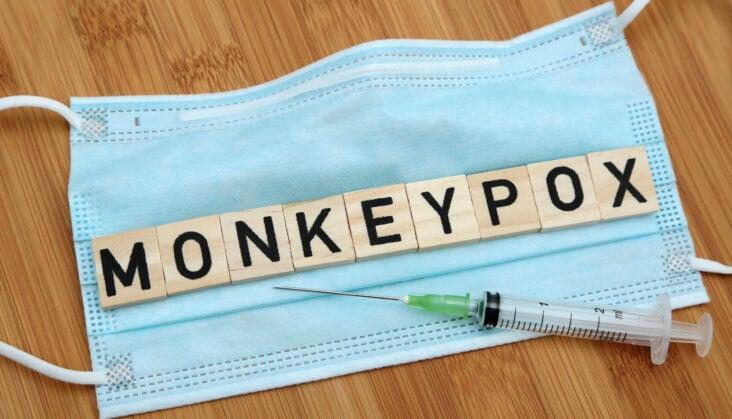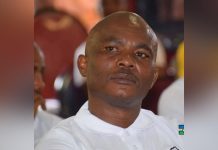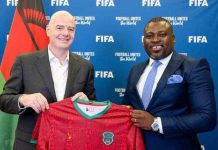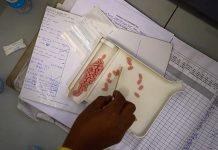By Chidozie Uzoezie
Africa-Press – Lesotho. Africa is almost always identified with diseases, famines, poverty, corruption and bad leadership. The single-story narratives are never in favour of Africa, especially when told by the Western media. In more ways than one, Africa has been a victim of cynical manipulation of public perception.
To be fair though, it would be incorrect and, perhaps, unreasonable to assume or postulate that the entirety of the Western world views and treats Africa with contempt because that’s not factually correct.
But while that’s not the true picture, the long-standing prejudice against Africa sits well with the absolute majority of the Western world. Coming hot on the heels of the Covid-19 pandemic, the monkeypox outbreak may yet be another opportunity to twist the narratives in favour of the West while making Africa the scapegoat.
It would seem that the conspiracy is building up already, but this opinion piece is more about what Africa needs to get right and less about the conspiracy theories.
Before the monkeypox outbreak becomes an African disease, there’s a lot Africa needs to do to contain the outbreak as well as stem the tide of the inevitable international public health politics.
Perhaps the most important thing Africa needs to do at this point with respect to the current monkeypox outbreak is to set the narrative straight, and the most important piece of information to impress on the African mind is that monkeypox disease is not an African identity, but a global public health burden.
It’s important to argue that, although monkeypox disease was first identified in humans in 1970 in the DRC, it is not an African disease as it not only affects countries in Africa but the rest of the world.
It’s imperative to also point out that while cases of human monkeypox had previously been reported in 11 African countries, including Benin, Cameroon, the Central African Republic, the DRC, Gabon, Côte d’Ivoire, Liberia, Nigeria, Republic of the Congo, Sierra Leone and South Sudan, it has since become a global public health burden as it has also be reported outside Africa, including Europe, North America, South America, Australia, and the Middle East.
To put things into perspective, according to the Global Health website, out of the 35 countries in which confirmed cases of the current monkeypox outbreak have been recorded, only two are in Africa.
As of 15 June 2022, only six (0.3%) of the total confirmed cases (1,806) of the current monkeypox outbreak are found in Africa. And with 85.5% of the global confirmed cases, Europe is the epicentre of the current monkeypox outbreak with 1,544 confirmed cases in 24 countries.
Away from gloating, the second most important thing Africa needs to do now is to make the correct information available to the general public, especially those who are at greater risk of contracting the monkeypox virus.
Disseminating correct information at the right time will not only reassure the people but will also give birth to informed decisions and the much-needed right actions.
And while it’s important that the information to be made available to the general public should include what monkeypox disease is, it’s also very crucial to let the people know what monkeypox disease is not.
Monkeypox is a re-emerging viral zoonotic disease of public health importance, occurring primarily in tropical rainforest areas. It is caused by the monkeypox virus, a member of the orthopoxvirus genus in the Poxviridae family.
The clinical presentation of monkeypox disease can mimic that of smallpox, a closely related but more contagious orthopoxvirus infection. With the global eradication of smallpox in 1980, monkeypox infection is now the most important orthopoxviral disease for public health.
At the moment, there are neither purpose-made vaccines against the monkeypox virus nor dedicated antiviral agents for its treatment. Also currently, only symptomatic treatment regimens are recommended.
But there’s no cause for alarm; while there are palpable fears in some quarters whether the current monkeypox outbreak will become a major global burden, the WHO maintains that the situation is not likely to escalate into a full-blown pandemic or public health emergency.
Citing data from Africa, the WHO upholds that smallpox vaccines are about 85% effective against monkeypox infection. This is due to the cross-protection provided by immunity against the orthopoxvirus genus to which both monkeypox and smallpox viruses belong.
However, there seems to be no need for mass vaccination at the moment as the monkeypox outbreak isn’t high enough to warrant such public health response. But to stop the spread of the monkeypox virus, Africa needs to look beyond vaccination and focus more on prevention, through grassroots education.
Without waiting for the usual foreign aid and simulation, African governments should, through public health agencies and other relevant parastatals, educate the masses on the measures that can be taken to prevent monkeypox infections.
In providing information, discretion should be applied to avoid creating unnecessary tensions and panic among the people. And while too much information can be detrimental, the public needs to know exactly what they’re up against.
Using readily available channels and far-reaching means, African countries should educate their citizenry at all levels by raising awareness of the risk factors associated with monkeypox disease as well as the preventive measures to avoid or minimise exposure to the virus.
To drive the messages home, campaigns and information should be devoid of ambiguity and should be communicated very clearly to the people in languages they’re most literate in. Disseminating information in local languages and dialects will be of immense benefit as it’ll ensure maximum compliance.
The public needs to understand that, in addition to avoiding contact with infected patients and zoonotic transmission, routine practices, including good personal hygiene, regular washing of hands with soap and water, and the use of alcohol-based sanitisers, can all be effective against the spread of monkeypox infection. The ‘ifs’ are many.
What if Africa can only delay the monkeypox doomsday and not avoid it entirely? Is Africa prepared for a robust response if there’s a full-blown monkeypox pandemic? Did Africa learn enough lessons from the deadly Ebola virus pandemic? Has Africa learnt anything from the devastating global Covid-19 pandemic? My assumption is that we have.
But if the opposite is the case, then that’s a colossal corporate shame. Although the monkeypox infection is usually a self-limited disease, it has a case fatality ratio of three to six per cent, which is similar to that of the coronavirus disease.
And compared to the much higher Ebola’s average case fatality ratio of 50%, the monkeypox disease would seem like a child’s play. But it isn’t. With insufficient and, in many cases, poor public health infrastructures which were stretched beyond their limits at the peak of the recent Covid-19 pandemic, Africa needs to re-strategise and prepare for a possible monkeypox pandemic.
Individual African countries should appropriate adequate budgetary allocations to their health sector. Health institutions should be stimulated and empowered both mentally and in terms of physical infrastructures. Non-functional infectious disease hospitals and other dilapidated health facilities should be revived in anticipation of the worst-case scenario.
https://www.theafricareport.com/215640/africa-must-control-the-monkeypox-narrative/
For More News And Analysis About Lesotho Follow Africa-Press






